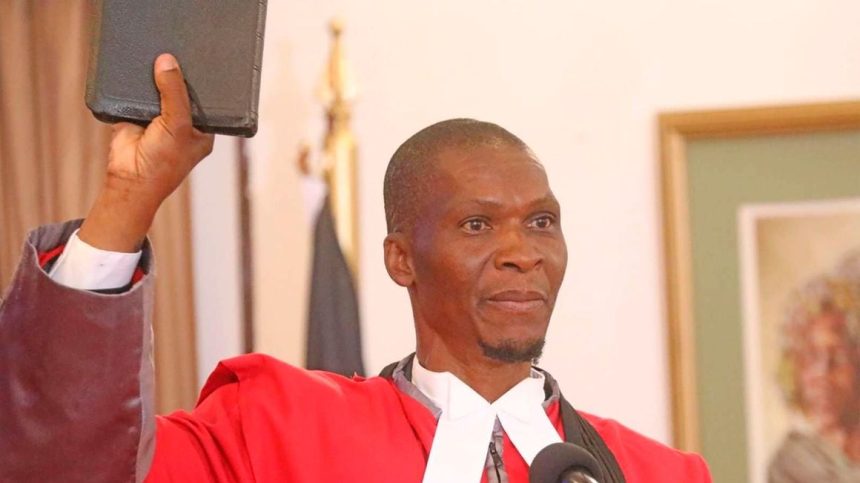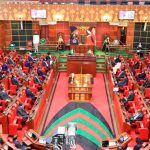When in 2019 about 500 residents of Chepareria, Makutano and Kapenguria in West Pokot County, felt aggrieved by the construction of a multi-million shilling sewerage plant, they turned to Nixon Wanyama Sifuna, then an environmental protection lawyer, for legal advice.
They had heard about Prof Sifuna and his passion for public interest litigation and environmental protection.
Before that, in 2001, Prof Sifuna, now a judge, was arrested and detained overnight over a case he had filed before the High Court in Eldoret, seeking the protection of forests. He was later released without charges.
He didn’t hesitate to take on the new challenge.
He got down to work, visiting the community, sharing meals with them and becoming part of their daily lives.
He guided the community through the process of registering a complaint with the Independent Recourse Mechanism (IRM) — the accountability and redress mechanism of the African Development Bank Group (AfDB), which funded the sewerage project.
Ultimately, the IRM found that the project was not in compliance with some aspects of its social and environmental policies. The project was eventually relocated.
Justice Sifuna was in April named alongside Régis Mpawaneyo, the director of the Roads Agency of Burundi, as joint winners of the AfDB Accountability Award for the year 2022.
The continental award by the Bank’s IRM recognises individuals that have displayed exemplary integrity and accountability in resolving complaints arising from projects funded by the lender.
The award ceremony will be held later this month at the AfDB offices in Nairobi and will be attended by the bank’s president, directors, the IRM team, among other officials.
The judge, who described himself as a critical thinker and problem-solver, when he appeared for his interview for the position of a High Court judge, was a legal practitioner and expert on environmental law for 27 years.
He was appointed to the High Court six months ago, after being interviewed for the position of the Court of Appeal twice, in 2019 and 2022. Justice Sifuna says his character is one of resilience, hard work and strict work ethic.
He is currently serving in the High Court Commercial and Tax Division, and also the Anti-Corruption Division.
The judge is also an associate professor of law and an environmental impact assessment and audit lead expert registered with the National Environment Management Authority (Nema).
He holds a PhD in Law from the University of the Witwatersrand, South Africa, a Master’s in Environmental Law from Moi University, a Bachelor of Laws degree from the University of Nairobi), and a Post-graduate Diploma in Law from Kenya School of Law.
Born in Bungoma 50 years ago, Justice Sifuna is the firstborn in a polygamous family of 16. He attended schools in Bungoma and Kakamega districts, emerging as one of the best students in Western Province in the A-level exam (Kenya Advanced Certificate of Examination).
The judge said his choice of law was inspired by his father Charles Wanyama, a retired police officer who was a prosecutor at various court stations.
“Partly, also my grandmother- a disciplinarian iron lady widowed before age 30 and whose love for controversy and protest earned her respect and hate in equal measure,” he says.
He describes his mother, Felistas Naswa, as one of Africa’s most hard-working housewives.
“She would often spend the day tilling the land and forget to cook for her children,” he says with a smile.
During his time in private practice, he became one of the country’s most distinguished courtroom lawyers, with a success rate of 95 per cent.
He says of his 46 cases reported in the Kenya Law Reports, he won 42 of them.
Friends describe the judge as a workaholic, a stickler for rules, and an accomplished researcher.
He was also a lecturer at Moi University, School of Law where his students included politicians like Prof Kindiki Kithure, the Cabinet Secretary for Interior, and Omar Hassan, a nominated MP for the East African Legislative Assembly (EALA) and a number of judges currently serving.




